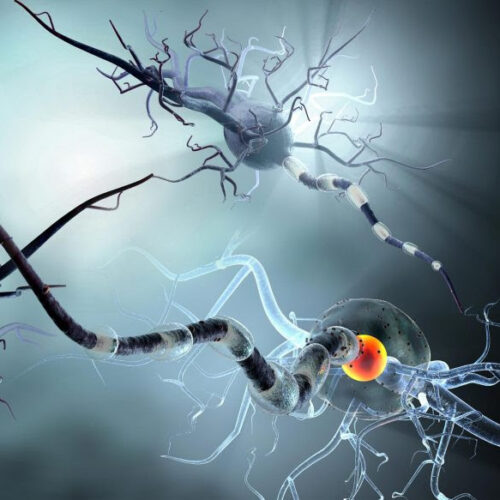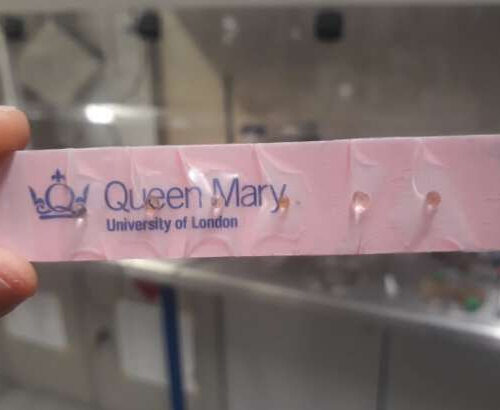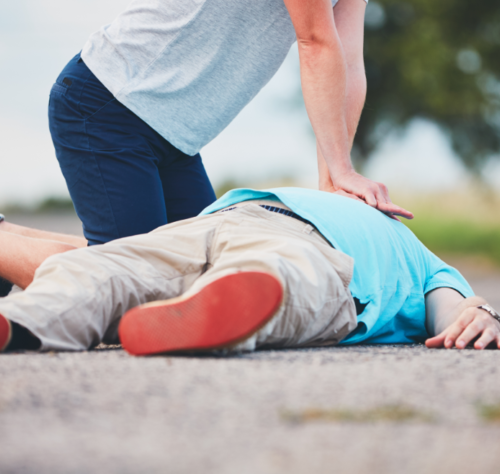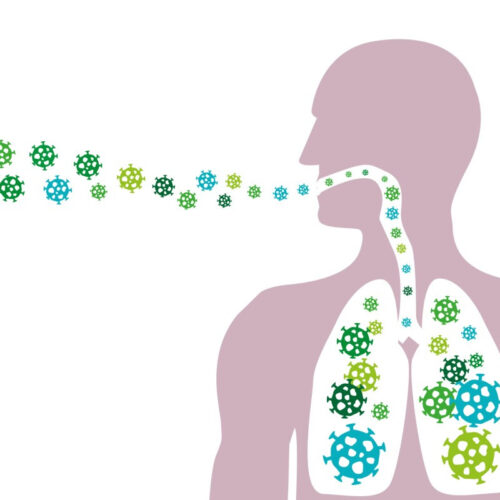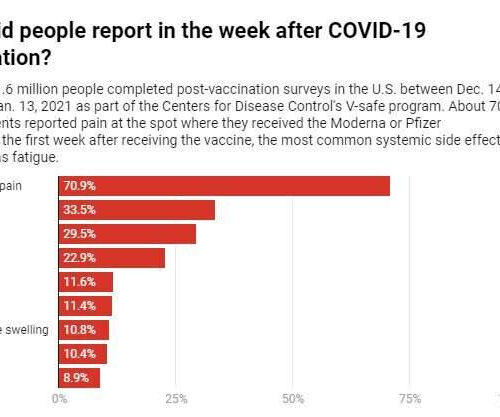People with diabetes are at increased risk of developing a severe course of COVID-19 compared to people without diabetes. The question to be answered is whether all people with diabetes have an increased risk of severe COVID-19, or whether specific risk factors can also be identified within this group. A new study by DZD researchers...
Tag: <span>COVID-19</span>
How COVID-19 Worms Its Way Into the Brain – Explaining Baffling Neurological Symptoms
By EXPERIMENTAL BIOLOGY APRIL 27, 2021 Study helps explain baffling neurological symptoms — and why they’re so unpredictable. New research offers an up-close view of how SARS-CoV-2, the virus that causes COVID-19, can spread to the brain. The study helps explain the alarming array of neurological symptoms reported in some patients with COVID-19, as well as why some patients...
Researchers develop new smell test for Parkinson’s, Alzheimer’s and COVID-19
by Queen Mary, University of London Image of the novel capsule-based smell test. Credit: Queen Mary, University of London A new smell test developed by Queen Mary University of London researchers has been found to be easy to use in patients with Parkinson’s disease, and could also be helpful in diagnosing COVID-19 in the broader population. Smell tests...
IS 1 VACCINE DOSE ENOUGH IF YOU’VE HAD COVID-19?
The findings, published in Science Immunology, suggest only a single vaccine dose may be needed to produce a sufficient antibody response. Researchers found that those who did not have COVID-19—called COVID naïve—did not have a full immune response until after receiving their second vaccine dose, reinforcing the importance of completing the two recommended doses for achieving strong levels...
CPR and COVID-19 – When is it safe to save a life?
Imagine you’re walking your dog down the street when you see someone ahead of you collapse. Prior to the outbreak of the COVID-19 pandemic, you’d rush to their side, check to see if they are breathing, feel for a heartbeat. Unable to detect either, you’d begin cardiopulmonary resuscitation (CPR) with chest compressions and mouth-to-mouth breaths, potentially saving...
Gut’s immune response in COVID-19 may not provide efficient protection of other organs
FRONTIERS Our guts may not provide long-lasting systemic immunity from COVID-19, which is where immune cells circulate through the body to provide protection to other organs, finds a new study published in Frontiers in Immunology. An analysis of blood samples from patients infected with SARS-CoV-2 revealed that immune cells circulating in the blood, which were triggered...
Experimental antiviral proves effective in halting spread and damage of COVID-19
by Mr Alan Williams, University of Plymouth Dr Michael Jarvis, associate professor of virology and immunology. Credit: University of Plymouth An experimental antiviral drug can significantly decrease levels of the virus causing COVID-19 and the damage it causes in the lungs, according to new research. Scientists from the United States National Institutes of Health (NIH) and the...
Anosmia, the loss of smell caused by COVID-19, doesn’t always go away quickly – but smell training may help
January 29, 2021 8.25am EST Editor’s note: Julie Walsh-Messinger is a clinical psychologist who studies the effects of long-term smell loss. Her research has focused on smell loss in people with serious and persistent mental illnesses, but since the beginning of the coronavirus pandemic, she has also studied smell loss caused by COVID-19. In this...
Evidence of COVID-19 airborne transmission “overwhelming” say experts
By Rich Haridy April 18, 2021 A year into the COVID-19 pandemic and a growing number of scientists are calling for greater recognition of airborne transmission of the viruscrystaleyemedia/Depositphotos A new review article published in The Lancet has presented 10 key scientific reasons why SARS-CoV-2, the virus that causes COVID-19, is predominantly spread though the air. The...
No, vaccine side effects don’t tell you how well your immune system will protect you from COVID-19
by Robert Finberg, The Conversation Credit: Chart: The Conversation, CC-BY-ND Source: Gee J, Marquez P, Su J, et al. First Month of COVID-19 Vaccine Safety Monitoring — United States, December 14, 2020–January 13, 2021. MMWR Morb Mortal Wkly Rep 2021;70:283–288 If someone gets a headache or feels a bit under the weather after receiving a COVID-19...

